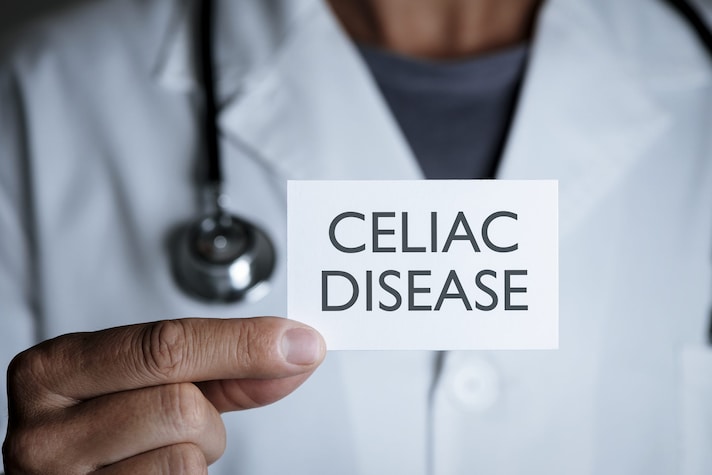Gluten-mania: when the obsession with gluten affects more than celiac disease
Already just reading these data we can say that the obsession with gluten affects more than celiac disease.
;)
Bread and pasta banning for at least two hundred thousand Italians: according to the latest report issued by the Ministry of Health last January, there are in fact around 206,000 Italians suffering from celiac disease (data updated to December 31, 2017). A number equal to about 0.34% of the population. The AIC, the Italian Celiac Association, makes it known, however, that there are at least 5 celiacs out of 6 who do not know they are. And for this reason the real number would exceed the data of the Ministry by three times: that is, they would be about six hundred thousand people suffering from gluten intolerance, or about 1% of the population. But to be even more surprising is another fact: in Italy in fact, according to the results of a survey by the Nielsen Institute published by the AIC, there are as many as six million people who buy gluten-free foods even though they have no need for it from a medical point of view, but only because they believe that a diet of this type is useful for weight loss and excellent for health. Already just reading these data we can say that the obsession with gluten affects more than celiac disease.
What is gluten
Pasta, bread and flour in general are the first foods that come to mind if we think of gluten. Dr. Raffaella Melani, biologist and nutritionist explains that "The term gluten refers to the protein complex naturally present in wheat (wheat, barley, spelled, kamut, triticale and oats)", but unlike one could think from this definition, gluten is present in many more products than we imagine: "The food industry – adds the doctor – has in fact exploited some characteristics of these proteins and therefore the gluten can also be found in some unsuspected foods, for example ready-made sauces”.

What is celiac disease
It is not an allergy, nor a sensitivity, nor are there different levels of this pathology: "Celiac disease is an immune reaction to gluten – explains the doctor – which mainly affects the small intestine in subjects with a genetic predisposition and it is resolved with the exclusion of gluten from the diet". It is not uncommon to begin to suffer from this type of pathology even in adulthood: "Celiac disease has a genetic basis that predisposes to the disease but it is not known if and when it will be manifested. In fact, many people with celiac disease may not have any symptoms for many years and have a diagnosis at a late age." There is also the possibility of suffering from the so-called "non-celiac gluten sensitivity", a disorder that has all the characteristics and symptoms of celiac disease, so patients can derive a clear benefit by excluding gluten from their diet, even if they do not have any feedback from clinical examinations.
Celiac disease: here's how you can discover it
To avoid do-it-yourself diagnoses if you suspect you suffer from celiac disease, it is essential to contact your doctor, or better yet, a gastroenterologist, who will first of all carry out a medical history, to understand what the patient's complaints are (usually swelling and abdominal pain, constipation, diarrhea, feeling of fullness) and eventually ask to eliminate gluten, for a certain period of time, from the diet. Later, as specified by the guidelines of the Ministry of Health, simple blood tests will have to be performed to verify the dosage of some antibodies (anti-tissue transglutaminase, anti-endomysial antibodies, anti-gliadin antibodies). If the presence of these molecules were to be particularly high, thus exceeding the reference values, there is probably a case of celiac disease. And then there is the duodenal biopsy, very important to detect the celiac disease, indicated only for diagnosis in adulthood.

Is gluten free eating good?
To treat celiac disease, therefore, the only method is to adopt a gluten-free diet. But eliminating this protein complex from the diet, without being affected by this disease, does not serve to lose weight or protect our body, as many believe, indeed it does not bring any particular benefit to health: "Take gluten-free foods, if there is no need, it is useless and can prove harmful – the doctor explains – From scientific literature we have seen that this type of diet does not give benefits and therefore there are no side effects to the daily intake of foods that contain it, in fact in the long run a restrictive diet can determine deficiencies of some micronutrients, especially when it is done autonomously without the opinion of a nutrition professional." Even a restrictive diet could prove to be a true boomerang, risking to get the opposite effect to the one hoped for, going towards to some shortcomings: "Even if gluten is not essential for our body – explains the doctor – the cereals that contain it have many beneficial health effects. I am thinking for example of magnesium, which stimulates the muscular system and regulates the nervous system. Or to methionine, an essential amino acid, found mainly in spelled, important for the synthesis of carnitine or fiber, important for regularity of the intestine. Beta-glucan can be found in barley, a molecule that can lower the level of cholesterol reducing the risk of cardiovascular disease and it is also useful to improve the glycemic levels and oxidative stress ".
;Resize,width=767;)
;Resize,width=712;)
;Resize,width=712;)

